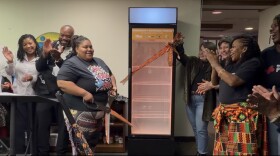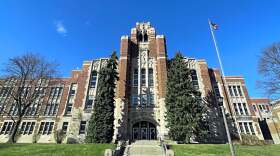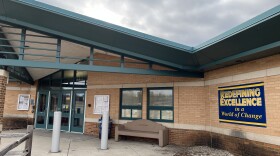Emergency room visits have been cut in half during the coronavirus pandemic. But there’s still a reason for some people to get medical help other than the virus.
More people have been shot so far this year than in years previous, and Milwaukee is no exception. During the same period, other crimes have decreased, according to an analysis of Gun Violence Archive data by The Trace, a nonprofit newsroom that focuses on gun issues.
The Trace was unable to run a full analysis of Milwaukee’s data since records of gun violence in the area are difficult to obtain in real-time. But other sources, including observations from violence prevention groups, have suggested that Milwaukee’s situation compares to Philadelphia, Nashville, Chicago, and other cities where the rise of COVID-19 has correlated with a severe spike in gun violence.
Unlike in Philadelphia, where funding for violence prevention has waned, groups like 414Life in Milwaukee remain fully funded. But safer-at-home orders have meant that in-person interventions have become more difficult to stage.
“When it’s a police officer and an intervention worker from the same background and the same city sitting in the same room, and they’re both telling you, ‘We care about you. We want you to do well, so please stay out of this and drop this conflict’ ... that has a powerful effect,” said Champe Barton, one of the authors of The Trace report.
“When you have to reach out by Facebook, or you have to try and call a family member to call the person ... the work just becomes less effective.”
It’s difficult to tell for certain why gun violence has spiked, as there is little research into gun violence prevention. It’s also difficult to study prevention strategies in a scientific manner since that would require a control group that would be left to fend for itself — an ethical violation. Champe says the coronavirus pandemic has provided an unintended case study into some of the factors that clearly have an effect on gun violence.
Some psychologists have cited boredom as a catalyst for violence. With most work, school, and recreation currently closed, there are fewer activities to keep people distracted from taking up a gun.
“Those sorts of interruptions to someone’s daily life really do hurt their chances of being away from violence, because we at least know that while you’re at work, while you’re at school, it’s difficult to also be shooting a gun,” said Barton.
Despite the rise in gun violence, Barton said he’s wary of some politicians’ claims that the “cure is worse than the disease” — the belief that virus prevention measures might lead to more death than the virus itself. It’s possible that’s because the same majority-black communities that have seen rises in gun violence are also those that have seen the most fatalities from COVID-19.
“In my reporting, I have not heard anyone who is anxious to reopen as a result of the coronavirus,” said Barton. “The loss of life as a result of the coronavirus outstrips anything from people staying at home and getting involved with violence as a result ... It would be unfair to look at that as a binary when there are ways that cities can intervene.”
Have a question you'd like WUWM to answer? Submit your query below.
_





